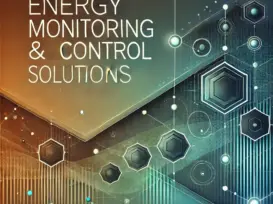Grus Home Energy - HVAC
The Importance of HVAC Systems in Modern Buildings
Heating, ventilation, and air conditioning (HVAC) systems play a crucial role in maintaining comfortable and healthy indoor environments in modern buildings. These systems are responsible for controlling the temperature, humidity, and air quality within a building to ensure the well-being of its occupants.
One of the main functions of HVAC systems is to provide thermal comfort by regulating the temperature inside a building. In the winter, the heating system warms up the indoor air to keep occupants warm and cozy, while in the summer, the air conditioning system cools down the air to prevent overheating. This ensures that occupants can work, study, or relax in a comfortable environment regardless of the weather conditions outside.
In addition to controlling the temperature, HVAC systems also play a crucial role in maintaining indoor air quality. Proper ventilation is essential for removing pollutants, allergens, and odors from the indoor air and replacing it with fresh, clean air from outside. This helps prevent the buildup of harmful substances and ensures that occupants breathe in fresh, healthy air. In buildings where windows cannot be opened, such as high-rise offices or hospitals, HVAC systems are the primary means of ensuring good indoor air quality.
Furthermore, HVAC systems help regulate humidity levels within a building, which is important for both comfort and health. High humidity can create a damp, muggy environment that promotes the growth of mold and bacteria, while low humidity can lead to dry skin, irritated eyes, and respiratory problems. HVAC systems are equipped with humidifiers and dehumidifiers to maintain optimal humidity levels and create a comfortable indoor environment.
Another important function of HVAC systems is energy efficiency. Heating and cooling account for a significant portion of a building’s energy consumption, so it is important for HVAC systems to operate efficiently to reduce energy costs and environmental impact. Modern HVAC systems are designed to be energy-efficient, with features such as programmable thermostats, variable-speed motors, and high-efficiency filters that help reduce energy consumption and lower utility bills.
In conclusion, HVAC systems are essential for maintaining comfortable, healthy, and energy-efficient indoor environments in modern buildings. By regulating temperature, humidity, and air quality, HVAC systems ensure the well-being of building occupants and contribute to a productive and sustainable built environment.
Blog, Smart Home Automation , June 27, 2024 , BMS, EMCS, Energy Efficiency, Energy Monitoring and Control Solutions, HVAC
Blog, Energy & Electricity Basics , December 11, 2024 , Home automation, HVAC, Smart Thermostats
©2025 All Rights Reserved. Grus IoT Co.,Ltd.

